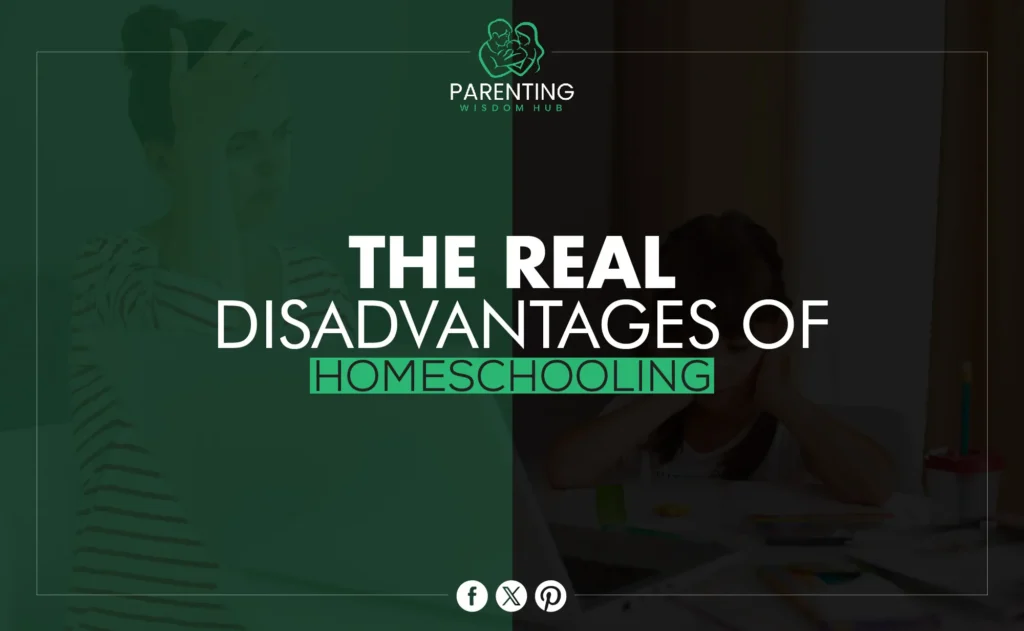Introduction
Homeschooling has become more popular as an alternative to regular learning over the last few decades. A lot of parents and teachers see it as a chance to adjust the way kids learn to fit their wants, needs, and beliefs. Still, some problems come up with homeschooling, just like with any other choice. Understanding these drawbacks of homeschooling can help parents who are thinking about going this route navigate the educational world more successfully.
Socialization and intellectual diversity difficulties are discussed in this homeschooling article. We will also discuss research-backed ideas and ways to avoid these drawbacks. We do this to assist parents, educators, and homeschoolers in making educated choices and improving their homeschooling experience.
Homeschooling Challenges
The Socialization Conundrum
One common problem with homeschooling is that it can be challenging to find enjoyable social activities for the kids. Kids can share their stories and learn new social skills every day from their friends at traditional schools. Teens homeschooled may not have as many social opportunities as teens attending regular schools, according to M. Medlin. Providing appropriate socializing for children is a common drawback of homeschooling. Traditional schools provide a community where kids may exchange experiences and learn social skills from varied classmates every day. According to M. Medlin, homeschooled adolescents may have fewer social chances than their counterparts in mainstream settings.
Children who don’t spend much time with others may have trouble developing their social skills, making it harder for them to make friends and understand social cues in different settings. Activities outside of school, group classes, and homeschool co-ops may help parents with this, but the effects will vary.
Limited Academic Diversity
Another big problem is that homeschooling might not offer enough educational variety. Experts teach a comprehensive program in traditional schools. Parents who homeschool may find it challenging to teach their kids advanced math, science, and languages other than English.
A well-rounded education encourages problem-solving and critical thought in many areas by offering a range of subjects. Without a varied program and teaching methods, homeschooled kids might miss these chances. Online tools, community schools, and families teaching their children might fill some of these gaps.
The Resource Strain on Parents
Parents need to spend a lot of time, energy, and resources on homeschooling. They also have to teach, give advice, and run events while keeping and changing the right program. The most responsible parents may tire of multitasking, which can hurt education.
Some families find homeschooling too expensive. Buying curriculum, resources, and supplies is up to the cost. One parent may have to cut their hours or quit their employment to homeschool.
Challenges in Assessing Educational Progress
Parents who homeschool their kids find it challenging to tell how much their child has grown without regular tests and teacher ratings. Homeschooling goals may alter the delivery of tests, yet they may not consistently reveal a student’s strengths and weaknesses.
How hard tests are may also affect student performance. Inconsistencies can hinder college and job search preparation. State education programs that offer tests and testing services specifically for homeschoolers can address these issues.
Limited Exposure to Extracurricular Activities
Homeschooled children may not have as many opportunities for extracurricular activities that contribute to their development. Extracurricular activities at traditional schools include sports, music, the arts, and clubs. These events provide students with the opportunity to discover their strengths, develop discipline, and form friendships.
Homeschooling groups often host these events, but geography, finances, and family involvement may limit their diversity. Homeschooled kids can learn a variety of skills by participating in extracurricular activities or joining neighborhood groups.
Solutions to Homeschooling Challenges
Despite these challenges, homeschooling can provide an enriching educational experience with the right strategies in place.
- Join Homeschool Co-ops: Participate in co-ops that offer group classes, collaborations, and social opportunities.
- Utilize Online Resources: Incorporate online classes and curricula to access specialized courses.
- Engage in Community Activities: Encourage participation in community events, sports, or arts programs.
- Network with Other Homeschoolers: Build a support network with other homeschooling families for exchanging ideas and resources.
- Seek Professional Guidance: Consult with educators or tutors for areas outside your expertise.
Making an Educated Choice
Choosing to educate your children at home is a significant decision that carries both advantages and disadvantages. If you know about the adverse things that could happen while teaching your child, you can prepare them for a positive time. To get through tough times, join the homeschooling community, use the tools, and be open about teaching.
If parents and teachers are aware of these issues, they can fix them. This will make the environment beneficial for both kids and parents.


